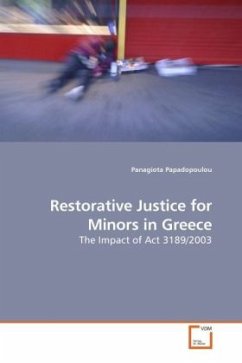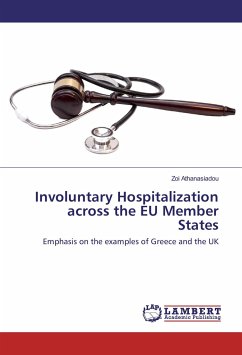This book examines the introduction, quality and implementation of court-based restorative practices for young offenders in Greece. It is based on the belief that state-run initiatives can have a restorative value. Although RJ is discussed widely in Europe, it is only now that the subject is becoming of growing importance to Greece. The move is dictated by the need to conform to recent EU legislation which promotes the application of mediated forms of dispute resolution and supports the rights of victims of crime within penal proceedings. The youth justice reform that took place in Greece in 2003, established RJ as part of a wider shift towards a more justice-based model. Act 3189/2003 introduced victim and community inclusionary measures both through pre-trial diversion and as court-orders. The current legal framework, though satisfactory, lacks the necessary political support; the inexistence of guidelines concerning the aims and execution of the new schemes, the lack of training provided for criminal justice practitioners, the major understaffing problems and the absence of financial resources hinder the development of RJ in Greece.
Bitte wählen Sie Ihr Anliegen aus.
Rechnungen
Retourenschein anfordern
Bestellstatus
Storno








